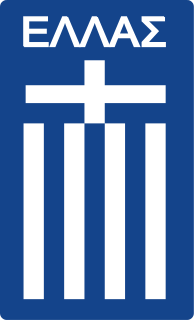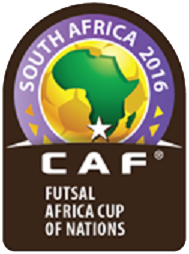The 1999 Rugby World Cup was the fourth Rugby World Cup, the quadrennial international rugby union championship. It was principally hosted by Wales, and was won by Australia. This was the first Rugby World Cup to be held in the sport's professional era.

The Greece national football team represents Greece in men's international football and is controlled by the Hellenic Football Federation, the governing body for football in Greece. Greece play most of their home matches in or near Athens, either in Athens at the Olympic Stadium in the Maroussi section of the city or in the port city of Piraeus at the Karaiskakis Stadium just outside Athens. Greece is one of only ten national teams to have been crowned UEFA European Champions.
The 1991 Rugby World Cup was the second edition of the Rugby World Cup, and was jointly hosted by England, Scotland, Wales, Ireland and France: at the time, the five European countries who participated in the Five Nations Championship. This was the first Rugby World Cup to be staged in the northern hemisphere, with England the hosts of the final. Also for the first time, qualifying competitions were introduced as the number of entrants had increased from 16 nations four years before to a total of 33 countries. The eight quarter-finalists from 1987 qualified automatically with the remaining eight spots contested through qualifiers by 25 countries. This resulted in only one new side qualifying for the tournament, Western Samoa replacing Tonga. The same 16-team pool/knock-out format was used with just minor changes to the points system. South Africa was again not included because of sanctions imposed on the country by the IRB, due to the government's apartheid policies.

The Iraq national football team represents Iraq in international football and is controlled by the Iraq Football Association (IFA), the governing body for football in Iraq. Most of Iraq's home matches are played at the Basra International Stadium.

The Indonesia national football team represents Indonesia in international football and it is controlled by the Football Association of Indonesia (PSSI). This was the first Asian team to participate in the FIFA World Cup in which for the 1938 tournament after its opponent, Japan, withdrew from the qualification heats. The 6–0 loss to eventual finalists Hungary in the first round of the tournament in Reims, France, remains the nation's only appearance in the World Cup. Thus, Indonesia holds the World Cup record as the team with the fewest matches played (1) and one of the teams with the fewest goals scored (0).
In European football, the UEFA coefficients are statistics used for ranking and seeding teams in club and international competitions. Introduced in 1979, the coefficients are calculated by UEFA, who administer football within Europe.
The 2010 FIFA World Cup qualification competition was a series of tournaments organised by the six FIFA confederations. Each confederation — the AFC (Asia), CAF (Africa), CONCACAF, CONMEBOL, OFC (Oceania), and UEFA (Europe) — was allocated a certain number of the 32 places at the tournament. A total of 205 teams entered the qualification competition, with South Africa, as the host, qualifying for the World Cup automatically. The first qualification matches were played on 25 August 2007 and qualification concluded on 18 November 2009. Overall, 2341 goals were scored over 852 matches, scoring on average 2.74 per match.

The 2012 Africa Cup of Nations, also known as the Orange Africa Cup of Nations for sponsorship reasons, was the 28th edition of the Africa Cup of Nations, the football championship of Africa organized by the Confederation of African Football (CAF).
The Thailand national futsal team represents Thailand in international futsal competitions and is controlled by the Football Association of Thailand.
The Vietnam national futsal team represents Vietnam in international futsal and is governed by Vietnam Football Federation.

The association football tournament at the 2016 Summer Olympics was held from 3 to 20 August in Brazil.

The 2018 UEFA Futsal Championship, commonly referred to as UEFA Futsal Euro 2018, was the 11th edition of the UEFA Futsal Championship, the international futsal championship organised by UEFA for the men's national teams of Europe. It was hosted for the first time in Slovenia, following a decision of the UEFA Executive Committee on 26 January 2015. Slovenia was chosen ahead of other bids from Macedonia and Romania.

The 2016 Africa Futsal Cup of Nations was the 5th edition of the Africa Futsal Cup of Nations, the quadrennial international futsal championship organised by the Confederation of African Football (CAF) for the men's national teams of Africa. The tournament was held in South Africa between 15–24 April 2016. A total of eight teams played in the tournament.

The futsal competition at the 2018 Summer Youth Olympics was held from 7 to 18 October. At Tecnópolis and the CeNARD, the first one located in Villa Martelli, and the second one in Buenos Aires. There are two tournaments, one for boys and one for girls.
The 2020 UEFA Women's Under-17 Championship was originally to be held as the 13th edition of the UEFA Women's Under-17 Championship, the annual international youth football championship organised by UEFA for the women's under-17 national teams of Europe, before being cancelled due to the COVID-19 pandemic. Sweden, which were selected by UEFA on 9 December 2016, were originally to host the tournament. A total of eight teams were originally to play in the tournament, with players born on or after 1 January 2003 eligible to participate.
The 2020 Africa Futsal Cup of Nations was the 6th edition of the Africa Futsal Cup of Nations, the quadrennial international futsal championship organised by the Confederation of African Football (CAF) for the men's national teams of Africa. The tournament was held in Morocco between 28 January – 7 February 2020.
The 2019 UEFA Under-19 Futsal Championship was the first edition of the UEFA Under-19 Futsal Championship, the biennial international youth futsal championship organised by UEFA for the men's under-19 national teams of Europe. The tournament was held at the Arēna Rīga in Riga, Latvia between 8–14 September 2019.
The 2019 UEFA Women's Futsal Championship, also referred to as UEFA Women's Futsal Euro 2019, was the first edition of the UEFA Women's Futsal Championship, the biennial international futsal championship organised by UEFA for the women's national teams of Europe.
The 2020 AFC Futsal Championship will be the 16th edition of the AFC Futsal Championship, the biennial international futsal championship organised by the Asian Football Confederation (AFC) for the men's national teams of Asia. A total of 16 teams will take part in the tournament.
The 2021 FIFA U-20 World Cup will be the 23rd edition of the FIFA U-20 World Cup, the biennial international men's youth football championship contested by the under-20 national teams of the member associations of FIFA, since its inception in 1977 as the FIFA World Youth Championship. It will be hosted by Indonesia between 20 May and 12 June 2021, which will be the first FIFA tournament hosted by the country. It will also be only the second U-20 World Cup to be held in Southeast Asia, first since 1997, and the first FIFA tournament in the region since the 2012 FIFA Futsal World Cup.








